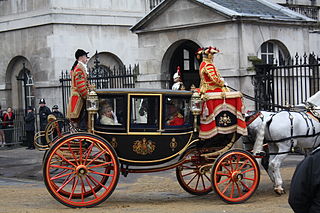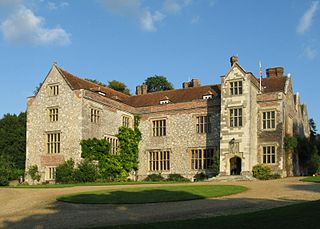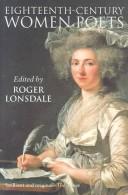Mothers of the Novel
Part I
Mothers of the Novel is divided into three parts. Part I treats a series of seventeenth-century women writers, only some of whom would have been familiar to most readers in 1986: Aphra Behn (1640–1689), Margaret Cavendish (1623–1673), Anne Clifford (1590–1676), Anne Fanshawe (1625–1680), Eliza Haywood (1693–1756), [1] Lucy Hutchinson (1618–1681), Delarivière Manley (1663 –1724), Katherine Philips (1631–1664), Anna Weamys (fl. 1651), and Mary Wroth (1587– 1653).
Part II
Part II includes a list of one hundred and six (106) early women novelists little-known at the time of writing, and the titles of 568 of their novels. Many of these works have since been reprinted and become subjects of academic study, though a proportion of these writers remain relatively obscure or, in some cases, unidentified.
Part III
Part III treats a series of late-eighteenth- and early-nineteenth-century writers from the list: Mary Brunton, Frances Burney, Maria Edgeworth, Sarah Fielding, Mary Hays, Elizabeth Inchbald, Charlotte Lennox, Amelia Opie, Sydney Owenson, Ann Radcliffe, Charlotte Smith, and Mary Wollstonecraft.
This article presents lists of the literary events and publications in 1815.
Elizabeth Meeke was a prolific English author, translator and children's writer, and the stepsister of Frances Burney. She wrote about 30 novels, published by the Minerva Press in the late 18th and early 19th centuries.

Lady of the Bedchamber is the title of a lady-in-waiting holding the official position of personal attendant on a British queen regnant or queen consort. The position is traditionally held by the wife of a peer. A lady of the bedchamber would give instructions to the women of the bedchamber on what their queen wished them to do, or may carry out those duties herself.
Dale Spender was an Australian feminist scholar, teacher, writer and consultant. In 1983, Dale Spender was co-founder of and editorial advisor to Pandora Press, the first of the feminist imprints devoted solely to non-fiction, committed, according to The New York Times, to showing that "women were the mothers of the novel and that any other version of its origin is but a myth of male creation". She was the series editor of Penguin's Australian Women's Library from 1987. Spender's work is "a major contribution to the recovery of women writers and theorists and to the documentation of the continuity of feminist activism and thought".
The Norton Anthology of Literature by Women: The Traditions in English, published by W. W. Norton & Company, is one of the Norton Anthology series for use in English literary studies. It is edited by Sandra Gilbert and Susan Gubar. This volume is dedicated to exploring the history of English-speaking women's involvement in the literary world, the traditions of which women writers have been a part, and the experiences women share, with the second and third edition giving more emphasis to how those experiences are shaped by differing cultural, racial, religious, socioeconomical, and sexual backgrounds. Norton released the third edition of the Norton Anthology of Literature by Women in February 2007, expanding the new edition into a two-volume set along with a companion reader. Additional material added sixty-one additional authors to the anthology, bringing the total to 219. The additional material expanded on the interest in current women's literature scholarship in the effects of diverse backgrounds on women's experiences.
The academic discipline of women's writing is a discrete area of literary studies which is based on the notion that the experience of women, historically, has been shaped by their sex, and so women writers by definition are a group worthy of separate study: "Their texts emerge from and intervene in conditions usually very different from those which produced most writing by men." It is not a question of the subject matter or political stance of a particular author, but of her sex, i.e. her position as a woman within the literary world.

Chawton House is a Grade II* listed manor house in Hampshire on the South side of Chawton village, and the present building was started in 1580.
Notable American Women, 1607–1950: A Biographical Dictionary is a three-volume biographical dictionary published in 1971. Its origins lay in 1957 when Radcliffe College librarians, archivists, and professors began researching the need for a version of the Dictionary of American Biography dedicated solely to women.

English Female Artists, in two volumes, assembled and edited by Ellen Creathorne Clayton, lists an overview of prominent English women painters up to 1876, the year of publication.
Frances Anne Edgeworth (1769–1865), known as Fanny, was an Irish botanical artist and memoirist. She was the stepmother and confidant of the author Maria Edgeworth.

This is a chronological list of women playwrights who were active in England and Wales, and the Kingdom of Great Britain and Ireland before approximately 1800, with a brief indication of productivity. Nota Bene: Authors of dramatic works are the focus of this list, though many of these writers worked in more than one genre.)

Eighteenth century women poets: an Oxford anthology is a poetry anthology edited by Roger Lonsdale and published in 1989 by the Oxford University Press. In the introduction, Lonsdale notes that while the featured writers may have flourished, to one degree or another, during the eighteenth century, by the time he came to collect their work, many of them had "disappeared from view." Scholars since have credited Lonsdale's "unprecedented" work for opening up new avenues for teaching and research. The collection comprises three hundred and twenty-three separate poems by one hundred and seven different poets, fifteen of whom remain anonymous. The entries are arranged chronologically, and each includes a biographical note.
This page is based on this
Wikipedia article Text is available under the
CC BY-SA 4.0 license; additional terms may apply.
Images, videos and audio are available under their respective licenses.





